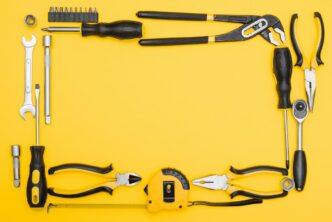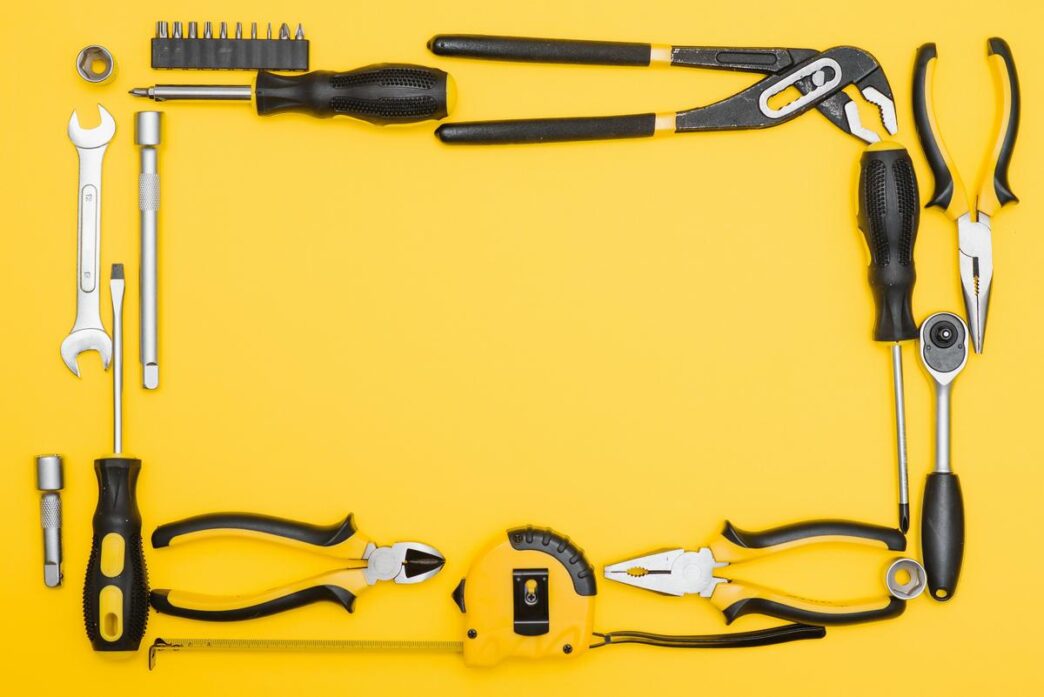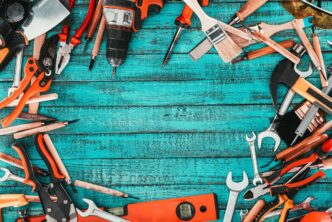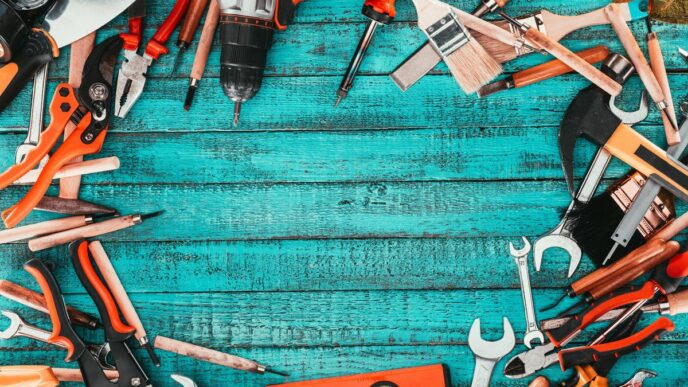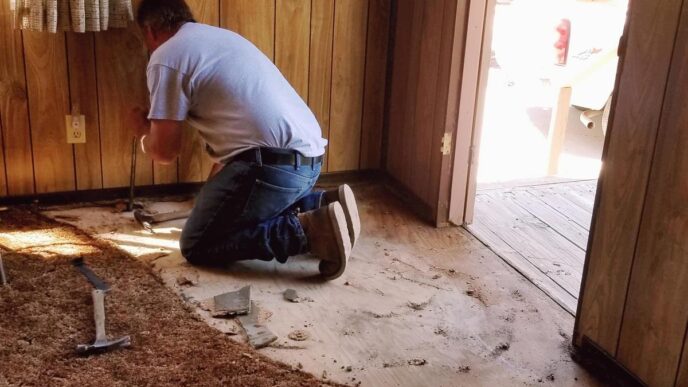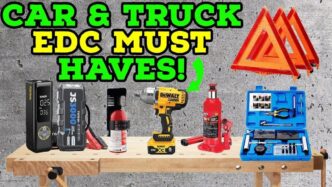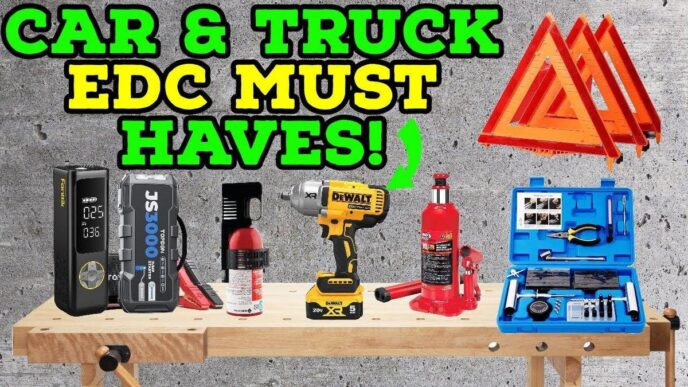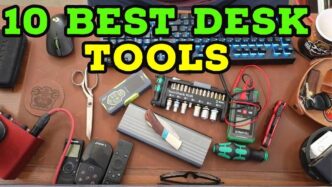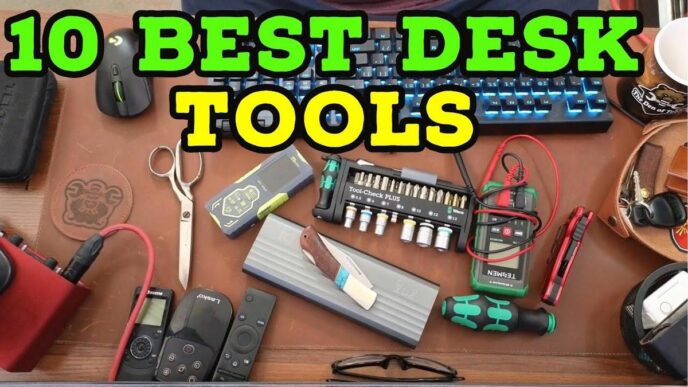Key Takeaways:
- Multimeter: Essential for measuring voltage, current, and resistance.
- Non-Contact Voltage Tester: Enhances safety by checking live wires without contact.
- Wire Strippers/Cutters: Crucial for cleanly stripping and cutting wires.
- Pliers: Various types aid in twisting, cutting, and holding wires.
- Circuit/Insulation Resistance Testers: Verify current flow and detect insulation faults.
- Cable Tracers/Fish Tape: Assist in locating wires and pulling them through conduits.
- Tool Organization/Maintenance: Keep tools dry, grouped, and regularly cleaned for readiness.
- Tool Selection: Prioritize quality and durability; choose professional tools for bigger tasks.
- Trusted Brands: Klein Tools and DeWalt are reliable for electrical tools.
- Storage Best Practices: Maintain a safe, dry, and accessible tool environment.
When tackling home electrical repairs, having the right tools is essential. But with so many options, how do you know which are the must-haves? In this guide, I'll break down the essential tools you need for both basic and advanced electrical work at home. From safety musts like a multimeter to handy devices for organization, I've got everything covered. Ready to build your toolkit and tackle those repairs like a pro? Let’s dive in!
What Are the Must-Have Tools for Electrical Repairs at Home?
What Is a Multimeter and How Is It Used for Home Repairs?
A multimeter is a vital tool in electrical repairs. It measures voltage, current, and resistance in wires. Imagine checking if an outlet works or if a fuse has blown. This is where a multimeter shines. In one tool, you can spot electrical faults fast. It gives you real-time info about electrical flow and safety.
How Does a Non-Contact Voltage Tester Enhance Safety?
A non-contact voltage tester is key to staying safe. It tells you if wires are live without direct contact. Touch the tester near a wire, and a light or beep confirms voltage. It protects from shocks before you begin any repair. Never skip checking with this tool. It's quick and essential.
Why Are Wire Strippers and Cutters Important for Electrical Work?
Wire strippers and cutters are must-haves for neat and safe work. They help remove the plastic coating from wires and cut them cleanly. Precise wire sizes make fitting into connectors easy. The Spruce's guide on wire strippers will help you choose the best tool for your needs. This tool ensures safe and snug connections, which are crucial for any repair job.
Which Tools Simplify Basic and Advanced Electrical Repairs?
When diving into the world of electrical repairs, having the right tools is key. Let's explore essential tools needed for both basic and advanced projects.
What Are the Uses of Pliers in Electrical Projects?
Pliers are a must in any electrical toolkit. They come in many types, like needle-nose, linesman, and diagonal cutting pliers. Needle-nose pliers help you reach into tight spots, twist wires, and hold them in place. They are great for precision work. Linesman pliers can twist, cut, and grip wires. They are a solid choice for heavier tasks. Diagonal cutting pliers are used to snip wires cleanly. They make cutting cables and wires easy.
How Do Circuit Testers and Insulation Resistance Testers Ensure Functionality?
Circuit testers let you know if current flows through a line. They come in handy to check if wires are live before you work on them. This keeps you safe and prevents errors. Insulation resistance testers help find faults in wires and other components by measuring the resistance level. This tool ensures that the wires do not leak electricity, keeping your projects safe and fully functional.
When Are Cable Tracers and Fish Tape Necessary?
Planning your repair saves time and energy. That's where cable tracers and fish tape come in. Cable tracers help you find and map out wires behind walls or in complex systems. This is perfect when you need to avoid cutting walls impulsively. Fish tape is a must for pulling wires through pipes, walls, or tight spaces. It’s crucial for projects involving conduit work. Check out fish tape uses to learn more.
With these tools on hand, tackling any electrical repair becomes simpler and efficient. Your DIY journey in home electrical work can be both safe and successful with the right gear.
How Can Homeowners Organize and Maintain Their Electrical Tools?
Organizing and maintaining electrical tools keeps them ready for emergencies. Start by keeping tools in a dry, safe, and stable place. Use shelves or a toolbox to prevent clutter. Group similar tools together to find them easily. This helps if you need them quickly during an emergency.
What Are the Best Practices for Tool Storage and Safety?
Store your electrical tools away from wet areas to prevent rust. Ensure tools are in a secure spot to avoid accidents. Label drawers or boxes for quick access. Safe storage reduces risk and protects your tools.
How Should Electrical Tools Be Organized for Easy Access?
A well-organized set of tools makes life easier. Group tools by task or size. Keep most-used tools at the front. Easy access cuts down repair time and stress.
Why Is Regular Maintenance Important for Electrical Tools?
Regular maintenance keeps tools in top shape. Clean them after each use and check for damage. Sharp tools work better and last longer. Poorly maintained tools may fail during important repairs, affecting success.
How to Select the Right Tools for Your Electrical Repair Needs?
What Factors Should Be Considered When Investing in Electrical Tools?
When choosing tools, focus on quality and durability. Tools that last save money over time. Look for strong materials like steel. Well-made tools will not break or wear out fast. This means fewer trips to the store for replacements. Investing in quality tools makes your work easier and safer. They perform better and feel good in your hands. A tool buying guide for electrical repairs can help you choose wisely.
How Do You Decide Between Budget-Friendly and Professional-Grade Tools?
Budget tools can be good for simple jobs. They cost less and are easy to find. But, for bigger jobs, think about professional-grade tools. These offer better performance and features. They last longer and handle tough tasks with ease. Homeowners benefit from these tools, especially if you plan many projects. Professional-grade tools make your work easier, faster, and more enjoyable.
Are There Specific Brands and Trends to Trust in Electrical Tools?
Yes, certain brands are known for quality. Brands like Klein Tools and DeWalt are trusted. They have a history of making good electrical tools. Stay updated with trends to get the best tools. New features and designs can improve tools every year. Trusting well-known brands helps you choose tools that are reliable and safe for your projects.
Conclusion
We've explored the vital tools for home electrical repairs, from multimeters to wire strippers. We've discussed how essential tools like voltage testers ensure safety and simplify repairs. Keeping tools organized and well-maintained boosts efficiency and safety. Choosing the right tools involves balancing quality, cost, and trends. With this knowledge, tackle your next project with confidence. Equip yourself with reliable tools and make every repair simpler and safer. Remember, the right tools aren't just a want—they're a need for every successful DIY repair.
